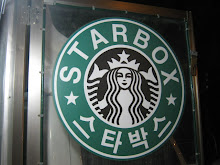Terminology of a Tea Taster
In future postings I expect that I will be reviewing many different types of tea. In the process of doing this I will most likely use certain terms that help describe what I am tasting. These terms will have some specific meanings to help standardize the sensory receptors of the tongue, which are unique for every person.Therefore, I have constructed a list of the most common terms I will use. This list will be referred to on occasion and it will be added to in the future if I find that people are needing clearer explanations.
Alphabetized Tea Terms
Astringency: The pallet registers a dry, harshness or coarseness compared to a soft mellowness.
Autumnal: A seasonal term applied to teas grown during the period of processing with varying degrees of flavor.
Bakey: Unpleasant taste usually caused by very high temperatures and driving out of too much moisture.
Biscuity: Pleasant characteristic, toasty or a taste of of fresh baked bread.
Body: Denotes heaviness, fullness and strength of the liquor on the tongue. Similar to thickness.
Bright: Ability of the liqour to reflect light from the surface, varying from mirror-like to total lack of reflection.
Brisk: A lively taste opposed to flat or soft.
Character: An intangible quality in a tea that identifies its origin of growth.
Clean: lacking in character but no unpleasant taint or taste.
Dry: Sliglty bakey.
Earthy: An unpleasant liquor taste found in tea stored under damp conditions.
Fine: Exceptional quality or flavor.
Flat: Lacking in briskness.
Full: Posessing color, strength and substance.
Grassy: Actual taste and also, tea without physical or chemical wither.
Green/Greenish: Raw almost vegitative taste. Can refere to first flush black tea.
Hard: Penetrating and desirable strength.
Heavy: Thick without briskness.
Malty: Desirable character with a thick, reamy mouth feel.
Mellow: Well matured as oppposed to raw.
Metallic: Bitter metallic taste.
Papery: A taint with a dry & flat character.
Point: Desirable brightness and acidity creating a fresh "sparkel" on the tongue.
Pungent: Ideal combination of briskness, brightness, strength and flavor, highly desirable.
Rich: Mellow liquor, abundant in quality and thickness.
Round: Full smooth liquor.
Scorched: Associated with dryness.
Smokey: A sharp acrid or smokey taste.
Soft: Opposite of brisk.
Spicy: Suggestive of spices.
Strong: A bold, heavy cup or sharp.
Taint: Foreign characteristic.
Thickness: Describing viscosity, ranging from light, almost water to a heavy, juice consistency.
Tired: Stale.
Wild: Liquor character found in end-of-the-season teas. Undesirable.
Woody: Sawdust-like character. Usually older teas have this quality.
Term Definitions assembled from:
Plymouth Tea
Harvest Fields
Holy Mountain Trading Company
NB Tea
Astringency: The pallet registers a dry, harshness or coarseness compared to a soft mellowness.
Autumnal: A seasonal term applied to teas grown during the period of processing with varying degrees of flavor.
Bakey: Unpleasant taste usually caused by very high temperatures and driving out of too much moisture.
Biscuity: Pleasant characteristic, toasty or a taste of of fresh baked bread.
Body: Denotes heaviness, fullness and strength of the liquor on the tongue. Similar to thickness.
Bright: Ability of the liqour to reflect light from the surface, varying from mirror-like to total lack of reflection.
Brisk: A lively taste opposed to flat or soft.
Character: An intangible quality in a tea that identifies its origin of growth.
Clean: lacking in character but no unpleasant taint or taste.
Dry: Sliglty bakey.
Earthy: An unpleasant liquor taste found in tea stored under damp conditions.
Fine: Exceptional quality or flavor.
Flat: Lacking in briskness.
Full: Posessing color, strength and substance.
Grassy: Actual taste and also, tea without physical or chemical wither.
Green/Greenish: Raw almost vegitative taste. Can refere to first flush black tea.
Hard: Penetrating and desirable strength.
Heavy: Thick without briskness.
Malty: Desirable character with a thick, reamy mouth feel.
Mellow: Well matured as oppposed to raw.
Metallic: Bitter metallic taste.
Papery: A taint with a dry & flat character.
Point: Desirable brightness and acidity creating a fresh "sparkel" on the tongue.
Pungent: Ideal combination of briskness, brightness, strength and flavor, highly desirable.
Rich: Mellow liquor, abundant in quality and thickness.
Round: Full smooth liquor.
Scorched: Associated with dryness.
Smokey: A sharp acrid or smokey taste.
Soft: Opposite of brisk.
Spicy: Suggestive of spices.
Strong: A bold, heavy cup or sharp.
Taint: Foreign characteristic.
Thickness: Describing viscosity, ranging from light, almost water to a heavy, juice consistency.
Tired: Stale.
Wild: Liquor character found in end-of-the-season teas. Undesirable.
Woody: Sawdust-like character. Usually older teas have this quality.
Term Definitions assembled from:
Plymouth Tea
Harvest Fields
Holy Mountain Trading Company
NB Tea



1 comment(s):
That's kind of interesting. It appears that tea tasting is, in some ways, as complex and developed as wine tasting.
By Dr Kuha, at
12:23 AM CST
Dr Kuha, at
12:23 AM CST
Post a comment
<< Home